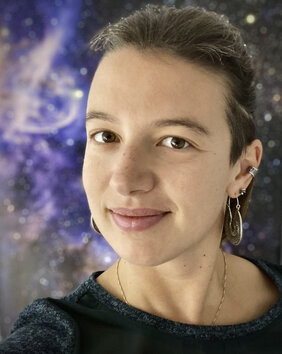Dr Giulia Despali starts her new position as Gliese Fellow 2020 at the Institute for Theoretical Astrophysics.
Giulia Despali studied and did her PhD at the University of Padova. The focus of her thesis was the evolution of dark matter halo properties in cosmological simulations and she graduated in 2015. Dr Despali spent 2015 as a visiting researcher at the Laboratoire d’Astrophysique de Marseille (LAM), before moving to Munich and MPA in 2016. Her research focuses on the nature of dark matter and on the connection between computational astrophysics and observational data. She explores the effect of alternative dark matter models, such as warm and self-interacting dark matter on the properties of galaxies and haloes, and compares these with predictions from the standard CDM scenario. In particular, her goal is to use and create state-of-the-art hydrodynamical simulations to study the properties of galaxies at small scales and derive theoretical predictions for the comparison with different observables, such as for example substructure gravitational lensing, the number of satellite or the properties of lens galaxies. Observations from ALMA, JWST, VLBI or E-ELT will provide higher spatial resolution and thus exploring the properties of the matter distribution at small scales with simulations, combining baryons and dark matter, is essential to interpret new data.
Dr. Despali will spend her fellowship at ZAH/ITA and is going to start on Dec. 1, 2020.
For more information visit the Homepage of Giulia Despali.
Contact:
Dr Giulia Despali
email: gdespali(at)MPA-Garching.MPG.DE
For information about the Gliese Fellowship Program see HERE.

